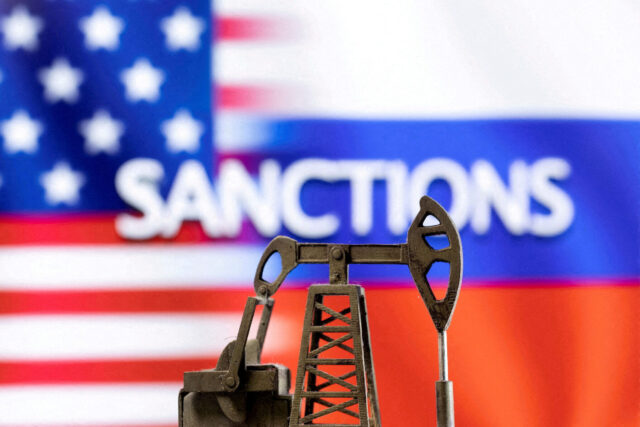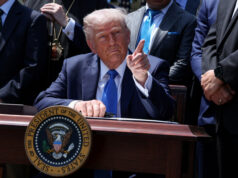
The administration of President Donald Trump has raised economic pressure on Russian President Vladimir Putin by allowing the expiration of a key license that previously permitted energy transactions with Russian financial institutions. The decision is aimed at strengthening Ukraine’s position in negotiations while limiting Russia’s ability to finance its war efforts.
Expiration of General License 8L
The U.S. Treasury confirmed that General License 8L expired as scheduled at 12:01 a.m. EDT on Wednesday. Originally issued by the Biden administration on January 10 as part of its most stringent sanctions against Russia’s oil and gas revenues, the license allowed for the winding down of energy transactions with major Russian banks, including Sberbank, VTB, and the Central Bank of the Russian Federation. With its expiration, these banks are now blocked from accessing U.S. payment systems, dealing a significant blow to Russia’s financial sector.
Sanctions and Their Impact
The Biden administration initially issued the license shortly after Russia’s February 2022 invasion of Ukraine to mitigate potential spikes in global oil prices. However, U.S. Treasury Secretary Scott Bessent has criticized these sanctions as ineffective, arguing that they were overly focused on maintaining stable oil prices rather than exerting maximum financial pressure on Moscow.
By allowing the license to lapse, the Trump administration seeks to leverage economic sanctions as a key tool in ending the war and facilitating peace negotiations. A Treasury spokesperson stated that “sanctions remain one of the levers to facilitate these goals.”
Broader Sanctions on Russian Energy Firms
The expiration of General License 8L is part of a broader strategy to cripple Russia’s energy sector. The U.S. has also prohibited dollar transactions with major Russian energy firms, including Gazprom Neft and Surneftegas. Additionally, the sanctions target 183 vessels involved in transporting Russian oil, including many in the so-called shadow fleet—aging tankers operated by non-Western companies.
ClearView Energy Partners, a leading energy policy research group, has warned that the expiration of the license could complicate and potentially halt petroleum purchases by third countries. Meanwhile, the U.S. Treasury Department is reportedly considering additional sanctions against Russian oil majors and oilfield service companies, further deepening the economic pressure on Moscow.
Geopolitical Implications
The Trump administration’s move underscores its commitment to ending hostilities and fostering negotiations to bring the war to a close. With Russia now facing heightened financial restrictions, its ability to sustain prolonged military operations may be significantly weakened. The global energy market, however, remains a key factor in the effectiveness of these sanctions, with experts closely monitoring potential disruptions and economic ramifications.
As geopolitical tensions continue to evolve, the expiration of General License 8L marks a critical shift in the U.S. approach toward Russia, signaling a renewed focus on leveraging economic sanctions as a diplomatic tool.



